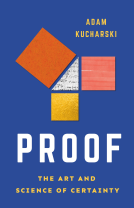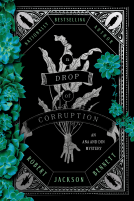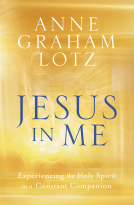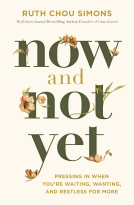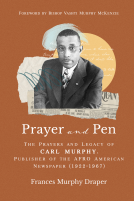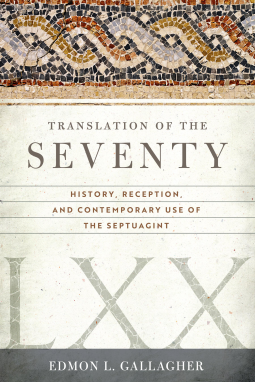
Translation of the Seventy
History, Reception, and Contemporary Use of the Septuagint
by Edmon L. Gallagher
This title was previously available on NetGalley and is now archived.
Send NetGalley books directly to your Kindle or Kindle app
1
To read on a Kindle or Kindle app, please add kindle@netgalley.com as an approved email address to receive files in your Amazon account. Click here for step-by-step instructions.
2
Also find your Kindle email address within your Amazon account, and enter it here.
Pub Date Aug 01 2021 | Archive Date Jan 20 2022
Abilene Christian University Press & Leafwood Publishers | Abilene Christian University Press
Talking about this book? Use #TranslationoftheSeventy #NetGalley. More hashtag tips!
Description
As the story goes, a few centuries before the birth of Jesus, seventy Jewish sages produced a Greek translation of the Hebrew Scriptures at the request of an Egyptian king. While some Jews believed this translation was itself inspired Scripture, even more significantly, the authors of what would later be called the New Testament relied on this translation as they quoted Scripture. Then in the centuries that followed, many Christians argued that God had provided the Septuagint as the church’s Old Testament. But what about all the differences between the Septuagint and the Hebrew Bible? And what about the extra books of the Septuagint—the so-called Apocrypha or deuterocanonical literature?
Written with students in mind, Translation of the Seventy explores each of these issues, with a particular focus on the role of the Septuagint in early Christianity. This fresh analysis of the New Testament’s use of the Septuagint and the complex reception of this translation in the first four centuries of Christian history will lead scholars, students, and general readers to a renewed appreciation for this first biblical translation.
Available Editions
| EDITION | Paperback |
| ISBN | 9781684261710 |
| PRICE | $20.99 (USD) |
Featured Reviews
This is a scholastic text that primarily appeals to readers with at least a passing interest in early judo-christian texts, specifically the text known as the Septuagint that became the foundation of the Christian Old Testament in the Early Church. “This book introduces the Septuagint and explores how early Christians made use of it.” What may be surprising to some readers is the evidence supporting the variety/plurality of sacred text and the challenges inherent to translation and transmission across the ages. This was apparently illustrated early in Christian patristic commentaries from Origen, Jerome and Augustine amongst others. What was surprising to me is the evidence that the New Testament makes references to the [expanded] Septuagint (LXX), the Masoretic Text (MT) and other unknown texts and even points to an evolution of sorts where the texts may have influenced each other, depending on the message/tradition the redactor/scribe wished to convey/support. Through-out the book, the author charts a nuanced middle ground, from which I gained a much better understanding of how the Christian Bible developed.
<spoiler>
Section I: Starting Points
1: Start: Introducing the LXX
2: Story: What the Ancient Jews Thought about LXX Origins
3: Origins: What Modern Scholars Think about LXX Origins
Section II: Canon and Text in Early Judaism and Earliest Christianity
4: Canon: The Influence of the LXX on the Size of the Bible
5: Text: Textual Pluralism in Ancient Judaism
6: Apostles: The LXX in the New Testament
Section III: The Text of the Septuagint among the Fathers
7: Varietas: Patristic Textual Criticism on the LXX
8: Theory: The Relationships between the LXX and the Hebrew Bible in Early Christian Thought
9: Jerome: The Use and Abuse of the LXX according to Jerome
10: Augustine’s Theory of Two Inspired Biblical Texts
Epilogue: The LXX for Modern Christians
Author Index
Subject Index
Scripture and Ancient Source Index</spoiler>
I was given this free advance reader copy (ARC) ebook at my request and have voluntarily left this review.
#TranslationoftheSeventy #NetGalley.
 Sage S, Reviewer
Sage S, Reviewer
What a great book! In this volume, Gallagher analyzes the problems and myths associated with the LXX translation of the Hebrew Bible and how it became lionized to a literal fault in the early Christian church. The first of the three sections is easily accessible to readers with no background in biblical history. The second section is easily accessible if you've read the Hebrew Bible recently. And the third section is accessible if you have a background in the difficulties in translating another language and/or the rivalries of the early Christian Church fathers (Jerome, etc.). I'm not a biblical scholar but I am an interested reader, I've read the Tanakh (JPS version) recently, as well as the Apocrypha, and I have done a bit of translation work. On that basis I found Translating the Seventy fascinating and compelling reading. If I had to wish for anything more, it would be for Gallagher to interrogate the early Church fathers' antisemitism more stringently. He does give several citations of blatant prejudice, but it's important for students to realize how those biases in the patristic sources affect later interpretations of the source text -- including systemic refusal among the Christian hierarchy to allow/approve a corrected translation of the Old Testament.
In sum, excellent scholarship. I had trouble putting this down.
A readable and thorough analysis of the claim that ‘the (Greek) Septuagint was the first Christian bible.’ The book should be of interest to anyone interested in the origins and contents of the bible.
Early Christianity thrived in a Greek speaking world. The New Testament was written in Greek and the first Christians read an Old Testament which was also written in Greek (Septuagint). This leads to the question: is it right to say that the Septuagint was what the Earliest Christians thought of as the ‘correct’ Old Testament?
The author shows that although modern readers can buy a book called a Septuagint, it is not clear that such a book existed in the ancient world. One version of the ancient Septuagint contained just the first five books of the bible (the Torah or Pentateuch). Other versions contained the Jewish (Hebrew) Canon, and others included the Deuterocanonical books.
This means that people should not argue from early Church approval of “the Septuagint,” to an approval of a particular version of the Septuagint Old Testament, such as the Protestant 39 book, or Catholic 46 book, or Orthodox 49 book version. The author insists that ‘not a single Greek manuscript of the first thousand years corresponds to any of those specific versions of the Old Testament (Kindle 28%).
A further set of issues arises because the text of the Greek Septuagint differs from the text of the Hebrew Masoretic bible, which modern translators tend to prefer as their text for the Old Testament.
The New Testament sometimes prefers the Septuagint version of a text. For example, Jesus quotes Septuagint Psalm 8.3 at Mat 21.16 ‘Out of the mouths of children you have prepared praise…’ The Hebrew version uses the word ‘strength’ instead of praise, so it does not fit the context.
But there are also instances where the New Testament prefers the Hebrew Masoretic text. For example Hosea 11.1 is quoted when Jesus’s family return from Egypt after Herod’s persecution: ‘Out of Egypt I have called my son.’ But the Septuagint states ‘Out of Egypt I recalled his children,’ so the Masoretic version is preferred in that context.
An analysis of St Paul also shows that around a third of his quotes seem to be neither Septuagint, nor Masoretic (Kindle 42%).
What this seems to show is that some of the earliest Christians did not have an ‘either/or’ mentality insisting upon a single version of the Old Testament as ‘correct.’
Recent discoveries at Qumram show the wisdom of such an approach, as some biblical texts did in fact exist in divergent versions. For example there is a short and a long version of Jeremiah, both of which can be found at Qumram. The short version went into the Septuagint and the Long version went into the Hebrew Masoretic bible. Can either version be said to be solely ‘correct’ or should both versions be considered as equally inspired scripture?
This question becomes all the more significant when the author suggests that at the time of Jesus, up to half the books of the Old Testament may have existed with alternative versions (Kindle 35%). If this is so, then it has implications for modern Christianity and the occasional tendency to write-off the Septuagint as just a ‘bad translation.’
But what are Christians to do when the Septuagint and Masoretic text seem to make divergent factual claims. For example, St Augustine raised the question of Jonah 3.4 which in the Masoretic text says that there are 40 days until Ninevah will be destroyed. But in the Septuagint it says that there are three days. They cannot both be literally true. So Augustine argued that there is a spiritual sense in which they can both be true.
Issues like these are sensitively and thoughtfully explored throughout the book, with a textual and historical analysis of the reception of textual versions of the bible in the early Christian era.
Overall, the book is an interesting read for both non-experts and biblical scholars.
These comments are based on a free ‘Advanced Review Copy’ of the text.
By far the highest quality introduction to the Septuagint now available.
The author begins with a statement which he will spend the rest of the book to explain: early Christians used a Greek translation known as the Septuagint. He begins with an extremely accessible introduction to the basics of textual criticism, defining the Septuagint (LXX) and the problems with that definition, the stories told about how the LXX came to be, and then how scholars now think the LXX came to be. He then grapples with how Jesus and the Apostles and their associates referred to the Hebrew Bible in the NT and shows how they most often use the LXX but will make reference to the MT or some other form of the Greek text, and it cannot be conclusively demonstrated that there are compelling theological reasons to insist on the use of the LXX without denying that the LXX proved important to Jesus and the Apostles.
The last portion of the book traces the use and defense of the LXX throughout patristic literature: he demonstrates how the earliest Christians assumed the LXX faithfully represented the MT until Origen put forth the text critical work and showed all the variations involved. He discusses Jerome's use of the LXX and attempt to exhort Christians toward the "true Hebrew"; he showed how Augustine's ultimately preferred method of dealing with LXX/MT variations was to try to find how both were inspired and both could be profitably read.
In conclusion the author speaks highly of the value of the LXX while still affirming the fact it is a translation, and thus by necessity always pointing to something else, notably, the original Hebrew witness.
He provides plenty of examples from the texts to demonstrate what he is saying. This is far and away the most comprehensive yet accessible introduction to the LXX I have seen - and that is quite a feat and accomplishment.
Highly recommended for anyone who has any interest in the Hebrew Bible.

